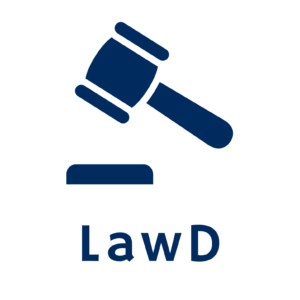Update for Russian Legal Translators and Court Interpreters
By Dmitry Beschetny
In early 2022, The ВLAWG published my article, “Translation by Interpreters and Interpreting by Translators,” in which I noted that, as a qualified translator, I could perform in Russian courts without needing a credentialed court interpreter status. At that time, Russian law did not recognize sworn translator or interpreter statuses, so separate certification for court translation and interpreting was not required.
This situation, however, is changing. I wanted to provide an update for legal translators and court interpreters working with the Russian language, especially those whose clients may be involved in cases heard in Russian courts.
At the end of 2023, the Moscow city government endorsed an initiative by the Union of Translators of Russia (UTR) to develop and pilot a regional model for court interpreting in Moscow. Although focused on Moscow, this project has attracted significant interest from other regions of Russia, as well as from translators and interpreters, lawyers, and other professionals within linguistic and legal communities across Russian-speaking countries.
A pilot training program for court interpreters in Moscow was launched as part of this initiative. Over 250 participants are currently enrolled. Successful trainees undergo additional certification and are included in an electronic registry of Moscow court interpreters. This registry is designed to be used directly by law enforcement and judicial services, making it easier for them to access qualified language professionals.
In early 2025, the Union of Translators of Russia announced the launch of an experimental online registry for court interpreters. They also provided detailed instructions on how law enforcement and judicial employees can register as clients. Notably, courts, law enforcement agencies, immigration services, and other government entities – along with potential private clients – can now assign court translation and interpreting tasks directly through this online registry. Translators and interpreters, including sign language professionals, can choose to accept or decline these invitations, creating a unique, marketplace-like interaction between clients and language professionals.
As a Moscow-based legal translator and judiciary interpreter, I am pleased to share that I have recently joined this registry as one of its first participants. It will be interesting to see how this initiative influences my T&I career moving forward.
The institution of court interpreting in Russia is still in its experimental phase. Testing of the registry’s functionality, which essentially acts as a job marketplace for court translators and interpreters, will continue throughout 2025. This marks a significant step forward in professionalizing and formalizing the field of court interpreting in Russia.
An interesting development, don’t you think?
About the Author
 Dmitry Beschetny is a Moscow-based English-to-Russian translator and interpreter specializing in legal translation and interpreting. He holds master’s degrees in law and in humanities and social sciences, as well as a translation degree. He has experience participating in criminal investigations and prosecutions and has worked as an in-house counsel and legal advisor in law firms. Dmitry’s portfolio includes translation and interpreting work for academia, law firms, and private clients. He has served as a member of the ATA Professional Development Committee and of the ATA Law Division Leadership Council. He can be reached at db@legalxlator.com.
Dmitry Beschetny is a Moscow-based English-to-Russian translator and interpreter specializing in legal translation and interpreting. He holds master’s degrees in law and in humanities and social sciences, as well as a translation degree. He has experience participating in criminal investigations and prosecutions and has worked as an in-house counsel and legal advisor in law firms. Dmitry’s portfolio includes translation and interpreting work for academia, law firms, and private clients. He has served as a member of the ATA Professional Development Committee and of the ATA Law Division Leadership Council. He can be reached at db@legalxlator.com.

Very interesting developments.
Thanks for sharing and for all of your service to the Association and the Division, Dmitry